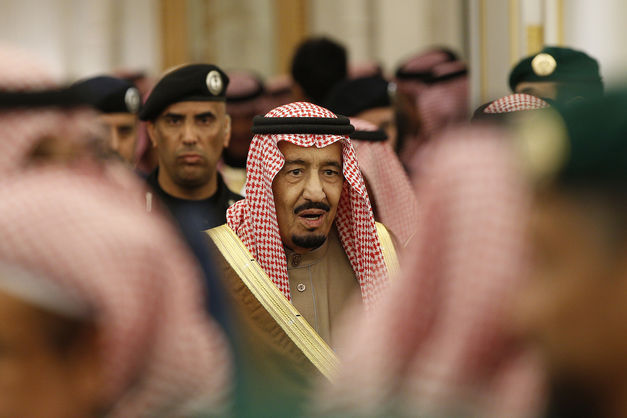Riyadh has been paying media across the globe as well as setting plans to ban reporters critical of the government from working in the country in a bid to project a positive image of the kingdom.
Riyadh has been paying media across the globe as well as setting plans to ban reporters critical of the government from working in the country in a bid to project a positive image of the kingdom, Reporters Without Borders concluded, citing newly leaked Saudi diplomatic documents.
The so called ‘Saudi Cables’ were revealed by the whistle-blower website, WikiLeaks, with most of them dating back to between 2010 and 2015.
The non-governmental organization cites numerous examples including Saudi Arabia looking to fund media publications from around the globe – from Iran to Senegal.
 "While it is not always clear from the cables what was actually done, they expose the extraordinary initiatives that were at least considered by the Saudi government in an attempt to improve its image abroad,” Reporters Without Borders (RSF) wrote on their website.
"While it is not always clear from the cables what was actually done, they expose the extraordinary initiatives that were at least considered by the Saudi government in an attempt to improve its image abroad,” Reporters Without Borders (RSF) wrote on their website.
The report highlighted methods used by Riyadh to promote its own interests, among them channeling funds to media organizations all over the world, as was the case in 2011 with the Wesal Farsi TV (now called Tawhid), a London-based Persian-language television station with anti-Iran agendas.
“In 2011, for example, the Saudi embassy in London suggested funding Wesal Farsi TV (now called Tawhid), a London-based, Persian-language TV station owned by a Sunni Iranian citizen opposed to his country’s government. In return for monthly funding and allowing Saudi Arabia to appoint a representative to its board of governors, the TV station would respond to Iranian media criticism of Saudi Arabia,” the report said.
The cables also highlight how some media organizations would actually approach the Saudi’s themselves for funding. Reporters Without Borders cites the example of the Afghan media center Spogmai. Its head requested funding in 2009 for the creation of a news website, a daily newspaper, a magazine and a TV station that would act as counterweights to Afghan media outlets, which were funded by rivals Iran.
Not all media outlets are willing to be bought, but the Saudi government seems to have a solution for those not interested in petrol dollars, RSF said.
It also went on to say that another practice applied by Riyadh was to ban reporters critical of the government from working in the country.
The report cited what happened recently to the London-based Financial Times newspaper, which had to withdraw its correspondent and close its Riyadh bureau for publishing what the Saudi government called “lies” about the kingdom.
Touching on the role of Saudi missions in Riyadh's dictated media coverage, the report concluded, "The embassies play a dynamic role in organizing and maintaining active pro-Saudi propaganda abroad. As they are familiar with the local media, they are best placed to monitor what the media are saying and to make suggestions to the Saudi government.”